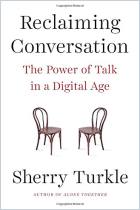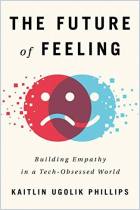
Alone Together
Why We Expect More from Technology and Less from Each Other
Recommendation
Clinical psychologist Sherry Turkle gained wide acclaim for her discussion of the influence of technology in Life of the Screen, which followed her book, The Second Self. Basing her argument on decades of research at MIT, where she founded the Initiative on Technology and Self, Turkle asserts that smart technologies and robotics don’t improve people’s lives. She sees kids yearning for parental attention, teens struggling with social media, adults desperate for a break from work and elderly people sidelined to be cared for by machines. Her examples are illuminating and make a compelling argument. She highlights the values of the model of child nurturing and parental attention that has ruled for the last 100 years. Turkle encourages you to be more conscious about your choices in using technology. She speaks to parents, to those debating how to manage the influence of technology and to those creating the next generation of smart technologies.
Summary
About the Author
Clinical psychologist Sherry Turkle, the founder and director of the MIT Initiative on Technology and the Self, also wrote Life of the Screen and The Second Self.





















Comment on this summary